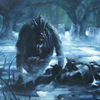
Seeing as there is only 2 genders from a medical and scientific standpoint and that people not identifying as those is more of a psychological and social issue I don't think we should list more than 2 genders.
Then the question becomes how do we handle people that is either offended by this or don't want their gender listed.
With the technical limitations currently on the site I suggest we just leave the gender box unchecked and use the Person's Biography to explain what's what.









